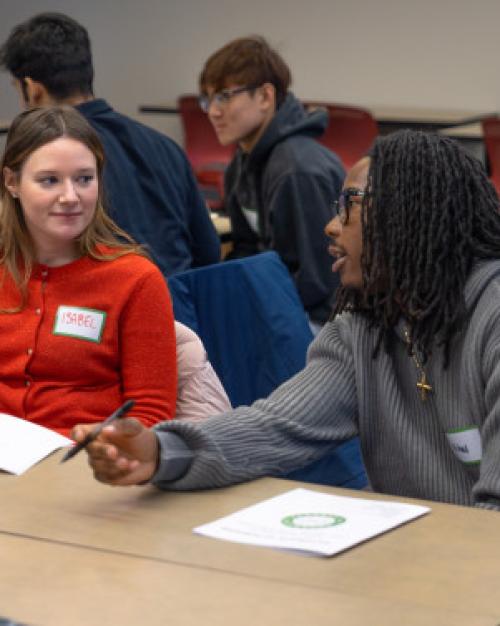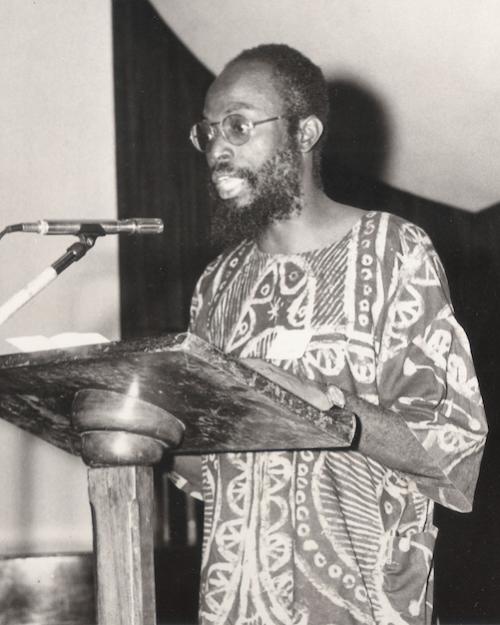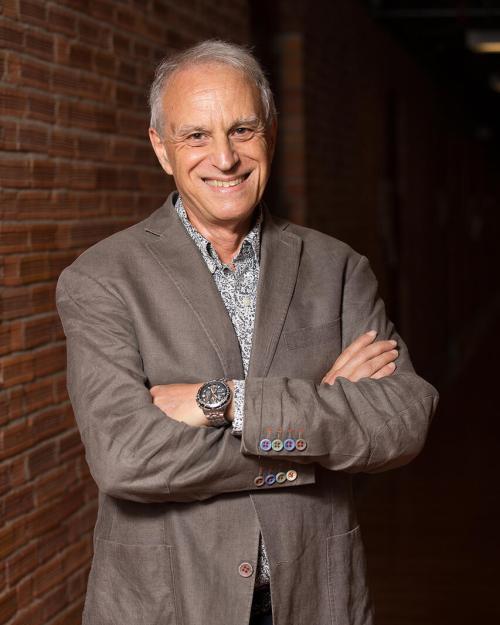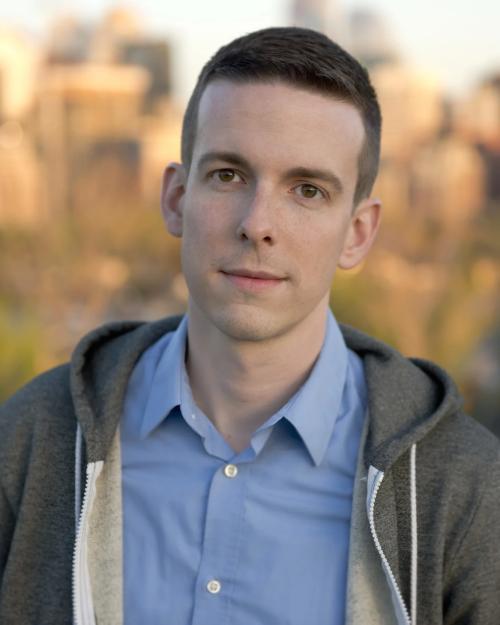A new work by Cornell alum Zachary Wadsworth DMA ’12, will premiere next weekend in three concerts, including one at Cornell’s Bailey Hall.
The Orpheus Chamber Orchestra’s Oct. 26 program, part of the Dallas Morse Coors Concert Series, includes Wadsworth’s “Chamber Symphony (after Maurice Ravel’s Piano Trio in A Minor, M. 67a),” along with works by Debussy, Saint-Saëns, Chausson and Meyer. Violinist James Ehnes will be the featured musician.
The symphony is the fourth work that Orpheus has commissioned Wadsworth to compose. It was a challenge Wadsworth said he embraced because the composition involved taking Ravel’s already “big, audacious and quite orchestral” trio for piano, violin and cello and expanding it for the orchestra.
“Ravel wrote famously wild piano parts, and this piece is no exception,” said Wadsworth, associate professor of music at Williams College. “That was the biggest change — there is no piano on stage with Orpheus.”
So those wild piano parts had to be parsed out to other instruments – the harp, the woodwinds, strings, brass or percussion.
It was also a bit of a full circle moment for Wadsworth, who had a smaller Ravel assignment during his time as a doctoral student at Cornell, taking an orchestral composition class with Steven Stucky, a leading composer who taught at Cornell for 34 years and won the Pulitzer Prize in Music in 2005.
“I pinch myself sometimes thinking that Stucky was somehow anticipating this part of my career,” Wadsworth said, adding that the class provided him with many helpful tools he uses today.
“He was so clear-eyed in that class that it’s not at all about faithfulness to the original piece, which was for different instruments,” Wadsworth said of Stucky. “His message was that it’s much more about the people than the instruments. A gesture that was played a certain way across the piano could be played across five to 10 instruments in the orchestra.”
To create the piece, Wadsworth said he listened to many of Ravel’s own orchestrations, thinking what Ravel would have done if he had this commission.
“Ravel would often have the strings glissando to do pitch bends, which was pretty novel at the time as a technique,” Wadsworth said. “There are none of those in the original trio, but there are moments when I think he might have done that. So, I did.”
While Wadsworth’s early composing career focused mostly on vocal and choral music, it’s since expanded to take on more ensemble and orchestra commissions.
“It never occurred to me how much my career would be based on what people ask me to do,” he said. “But I’m excited to be working with large ensembles, because there’s so much you can do color-wise and gesture-wise, and with smaller ensembles too.”
Wadsworth said he enjoys working with live music, rather than in a recording studio, because he appreciates watching professional musicians interpret his work.
“The musicians can do something that delights you or bring something you didn’t expect to be there,” he said. “There’s decision-making that’s adding value to the piece.”
Wadsworth does have an upcoming vocal chamber work, “Towers of Babel,” which will premiere in February with the Belvedere Series in Richmond, Va. And several of his choral and instrumental pieces will be performed across the county in the next few months.
And he often channels Stucky in his Williams College classroom. Past students of Stucky (now professors themselves) have a shared Google Drive with many of his teaching materials and lesson plans, Wadsworth said.
“His legacy as an orchestrator and as a teacher is something that his students all think about; it really defines our thoughts about Cornell,” he said. “His students are trying to keep his teaching spirit alive, as well as the human that he was, always encouraging us to be good musical citizens and collaborators.”
Tickets for the concert can be purchased on the Dallas Morse Coors Concert Series site.




